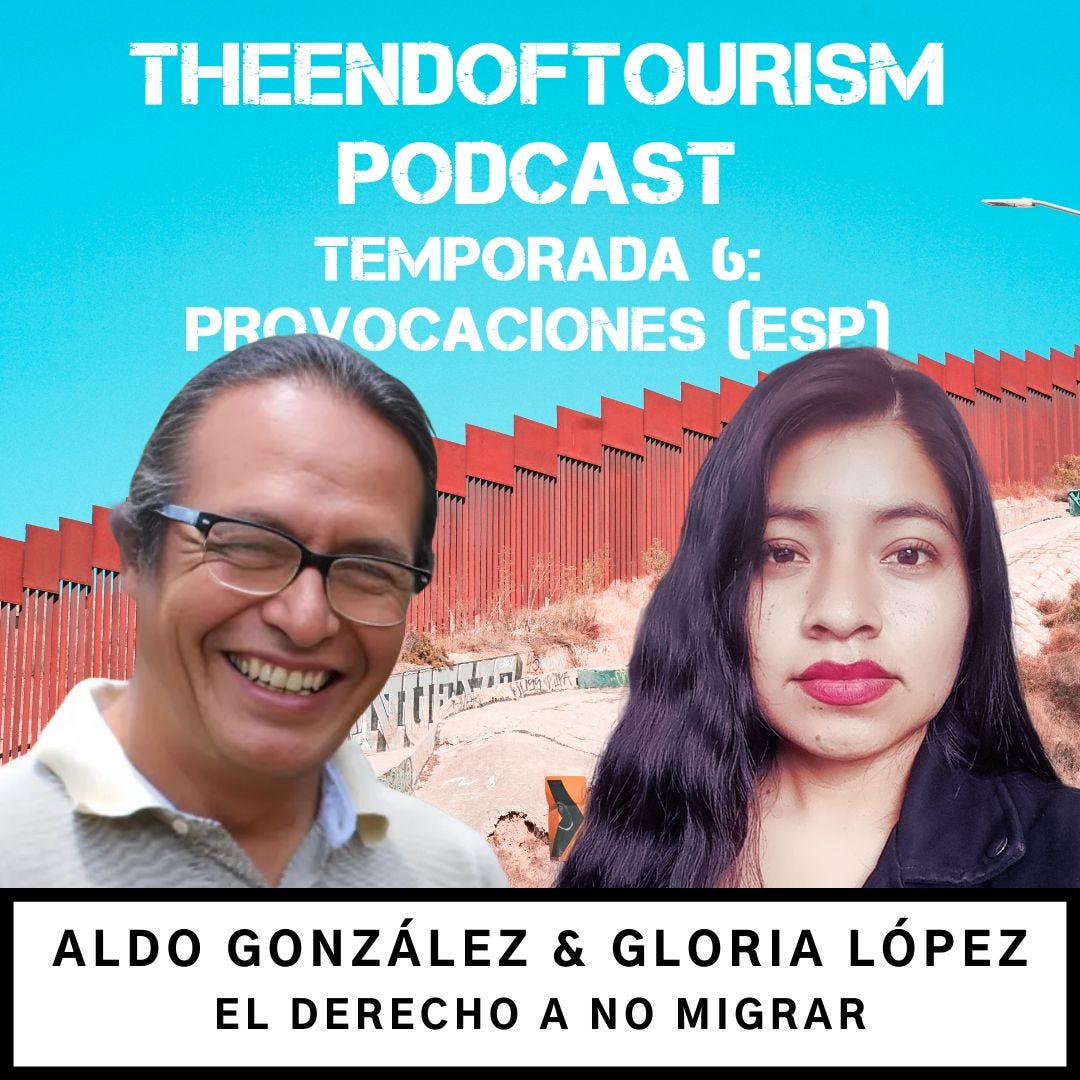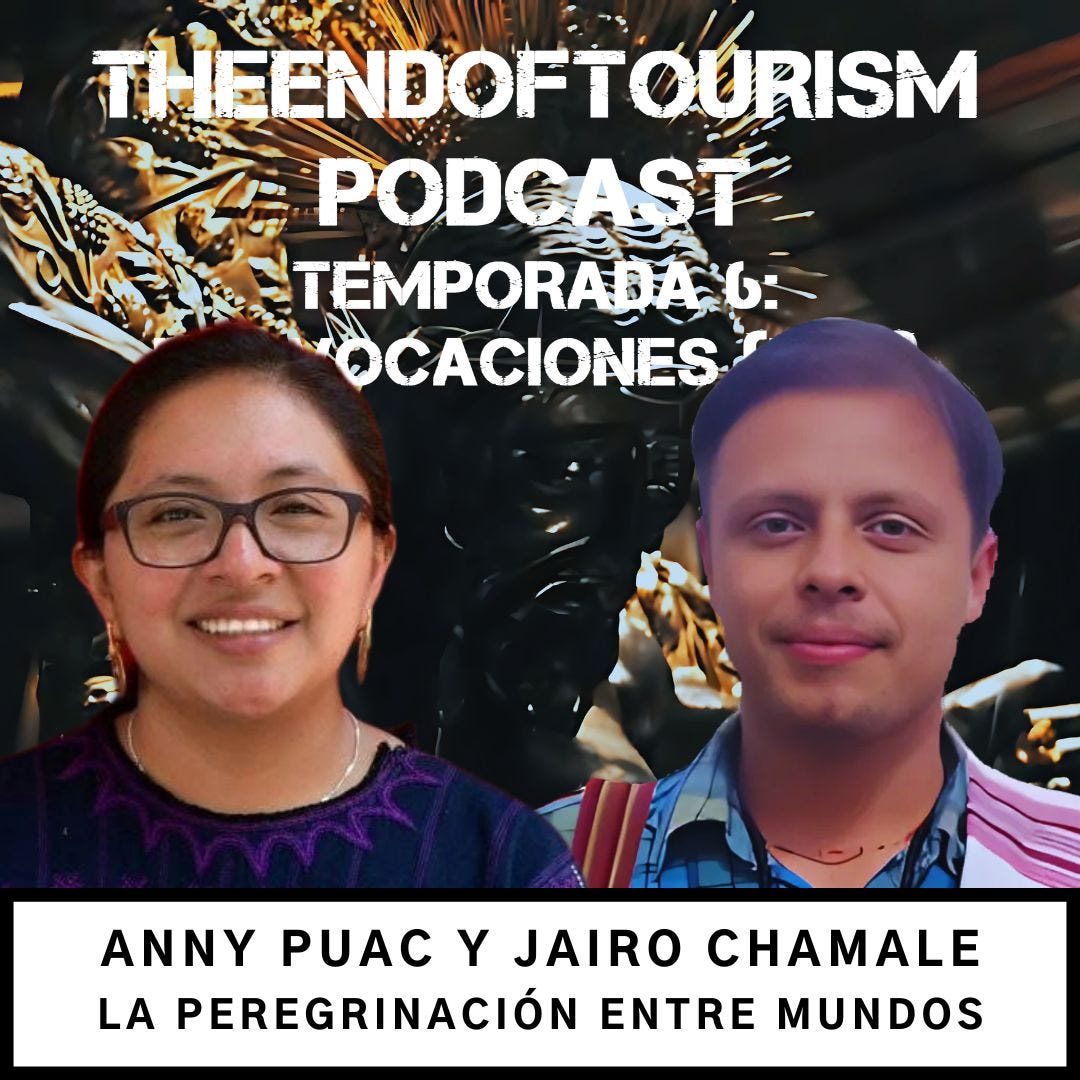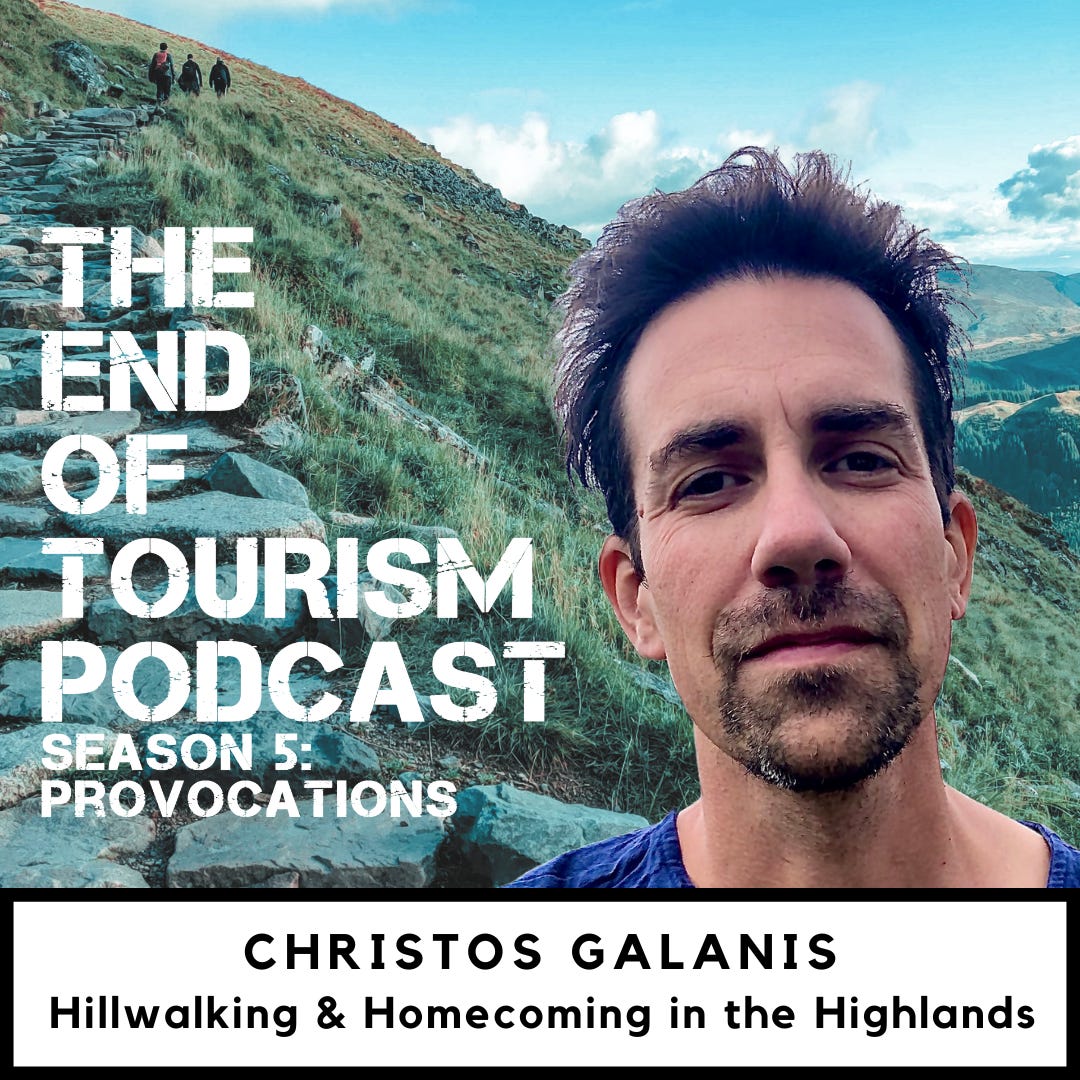S5 #3 | We Are Not Americans w/ Healani Sonoda-Pale (Ka Lahui Hawai'i)
Description
My guest on this episode is Healani Sonoda-Pale, a Kanaka Maoli Human Rights advocate for Self-Determination and a Water Protector who has been organizing at the intersection of the indigenous struggle for liberation and environmental protection in Hawai'i. She is a member of the Red Hill Community Representation Initiative and the spokesperson of the Ka Lahui Hawaii Political Action Committee. Healani was born and raised on the island of O'ahu where she resides with her family.
Show Notes:
The Beauty of the Pandemic Shutdown in Hawai’i
The Fallout of the Lahaina Fires in West Maui
No Controls
Manufacturing the Authentic
Reopening for Tourism in the Midst of Catastrophe
Local Schism: Those in Favour and Those Against
The Tourism at the Heart of the Housing Crisis
Ka Lahui Hawai'i Political Action Committee
The Water Crisis in Oahu
Decolonizing Tourism is an Oxymoron
Solidarity with Kanaka Maoli
Homework:
Oahu Water Protectors | Red Hill Community Representation Initiative
Transcript:
Chris: [00:00:00 ] In the first season of the podcast I spoke to Hokulani Aikau and Vernadette Gonzalez about the attempts to decolonize tourism in the Hawaiian islands. And following that Kaleo Patterson. Who offered a deeper historical and cultural background into the ongoing us occupation of Hawaii. The military industrial tourism complex, and some of the traditional forms of hospitality that Hawaiians have engaged in. Since then, and especially because of the wildfires that spread through west Maui this past summer. Listeners have asked again and again, to return to the islands, to host the voices of those. They're now struggling with another catastrophe. Who are offering resilience and resistance. In the face of these enduring consequences. And as such, I welcome.Healani Sonoda-Pale to the pod. Thank you for joining me today, Healani.
Healani: It's my pleasure to be joining this podcast and to help [00:01:00 ] spread the message about tourism in Hawai'i.
Chris: Healani, could you do us the favor of elaborating a bit on where you're speaking from today and how the world looks like for you?
Healani: Okay. So I'm a Kanaka Maoli woman, born and raised in Hawai'i on the island of O'ahu. I have been in the Hawaiian movement for liberation and self determination for nearly 30 years. I am a student of Dr. Haunani-Kay Trask, and I am on the front lines of many, many issues. The issues that we face today are, many of them are a consequence of tourism.
The desecration of cultural sites. The degradation of our beautiful beaches pollution, traffic, overcrowding, the high cost of living in Hawai'i, the extremely high cost of housing in Hawai'i. These are all because of tourism. This is happening to Hawai'i. [00:02:00 ] As a result, direct result of the tourist industry, which Hawaii relies on.
And in Hawaii, we have two businesses. We have the military industrial complex and the tourist industry. Those are the two worst industries to rely on, number one. And they are the most exploitive and extractive industries to have. They do not enhance our way of life here on, on these islands in Hawaii.
They do the opposite. They have brought many of us to the brink where we are now, most of us living paycheck to paycheck. The average cost of a house in Hawaii is a million dollars.
I believe Honolulu is the number one or at least the top three most expensive cities in the United States to live in. So tourism is a plague in Hawaii. It is a plague upon this place and it has caused us to [00:03:00 ] struggle on a daily basis, not just financially and not just socially, mentally as well.
Having to deal with tourists on a daily basis in Hawaii is frustrating, so that's kind of like the space I'm coming from. I am involved with the water issue, protecting our water, which is now something that is a huge issue. I'm very much involved in the Red Hill issue. I'm involved with protecting Iwi Kūpuna, which is our traditional Hawaiian burials. I'm involved with the repatriation of our land. Again, another big issue. It never ends because the, the economic, social pressure to take and take and take until there's nothing left is relentless.
So that's the space we're coming from.
So you talked about COVID, right? You started this podcast in the beginning of COVID and COVID was an eye opener for a lot of people in Hawai'i. When COVID happened, [00:04:00 ] the state of Hawai'i shut down and tourists weren't allowed here during our shutdown.
I believe it was like a year and a half. It was beautiful. Even though we were living in the middle of a pandemic, our beaches were empty. There were no lines at the stores. There was no traffic. Even the air we breathed seemed cleaner. The water we swam in, in the ocean, didn't have this sliminess on it, from tourists with suntan lotion swimming in it all day, right?
So the fish came back. Even the plants and the land was happy. I mean, it was a beautiful time. Even though it was sad because we were living through a pandemic, it was a beautiful time for us as Kanaka because we got to see Hawai'i without tourists. And that really opened the eyes for people who usually are not as [00:05:00 ] critical of tourism, as many of us have been so more people in Hawaii started saying, especially Kanaka Mali, well, how do we move forward without tourism?
But when the state opened up again, tourism came back and it came back with a vengeance.
When you look at what was happening on social media and, you know, what people were posting and across all the islands, we saw some frustration. We saw people posting about interactions they were having with tourists at sacred sites and beaches. People were more aware that tourists were there after COVID because we were able to enjoy our beaches, enjoy our islands without them.
And then when they came back, it was not only dangerous because we live 2, 000 miles away from the nearest continent. So, they were bringing in the COVID. I mean, from the time of [00:06:00 ] Captain Cook, tourists, visitors, explorers, missionaries, they have been bringing in diseases when, when Captain Coke arrived in 1778. We didn't have any immunity to these diseases, and so now, I think for a lot of residents here in Hawai'i, our eyes have been opened on what we have to give up for tourism.
We have to sacrifice not only our beautiful island life, but a way forward that doesn't include commodifying who we are as a people, our culture, everything. The state's been talking about diversifying the industry here in Hawai'i, right? They wanted to look into agriculture was one. They've never seriously taken that up. And they always fall back on tourism.
Chris: And why do you think that is? Because it's just so easy.
Healani: Because they've invested. It's a multi billion dollar business. There's hotels. Waikiki [00:07:00 ] is loaded with hotels. It's business interests. It's those that have been in control of the tourist industry, wanting to keep control of that and wanting to keep their financial interests protected and keep going.
So that is, that has been a problem. And of course we have strong lobbyists here in Hawai'i for the tourist industry. It is an industry that is supported by taxpayer dollars. It's one of the few industries we give millions of dollars of our money. It's a private industry supported by taxpayer dollars.
So it's a private industry that we support that exploits not just our resources, our culture, but they have really degraded our way of life here. They've made everything so expensive that most of our people, most of the indigenous people of Hawai'i have moved away because they can't afford to live here.
Chris: And you know, I'm curious [00:08:00 ] in this regard, to what extent do you think that this Government money and government decisions played a part in these wildfires that passed through West Maui in August, you know, like reading and researching for this interview and seeing what's been shared online and social media, the term management and mismanagement continues to arise in and among social movement activists.
And I'm curious to what extent you think that either government action or inaction or the tourism industry had a part to play in what happened this past summer.
Healani: The Lahaina Fires. was so tragic and the tragedy continues months after. The suicide rates are on the rise in Lahaina. Families are still displaced, thousands of them. They were just [00:09:00 ] a few days ago, I had posted about it. They were just given again, eviction letters. The last time I was in Maui was there.
The first set of eviction letters that went out. So they're being housed in hotels, 7,00-8,000 of them; families that have lost everything, in hotels. And now they're being told to leave to make way for tourism, to make way for tourists. That's the enormity of the pressure that tourists, tourism brings with it. The pressure to a piece and to serve and to put tourism first.
Just going back to my childhood in school. We were basically brainwashed into thinking we need tourism. Without tourism, we wouldn't have jobs. There would be no money, you know? So it's been kind of ingrained in us. And that's why I think COVID was super important because it was an eye opener for a lot of us.
Because they saw really [00:10:00 ] what was possible, a world
























